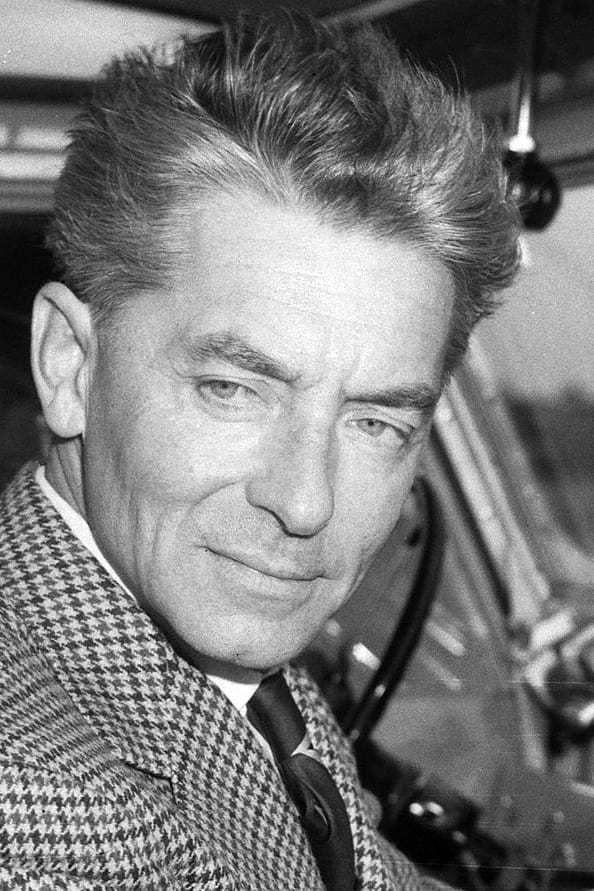
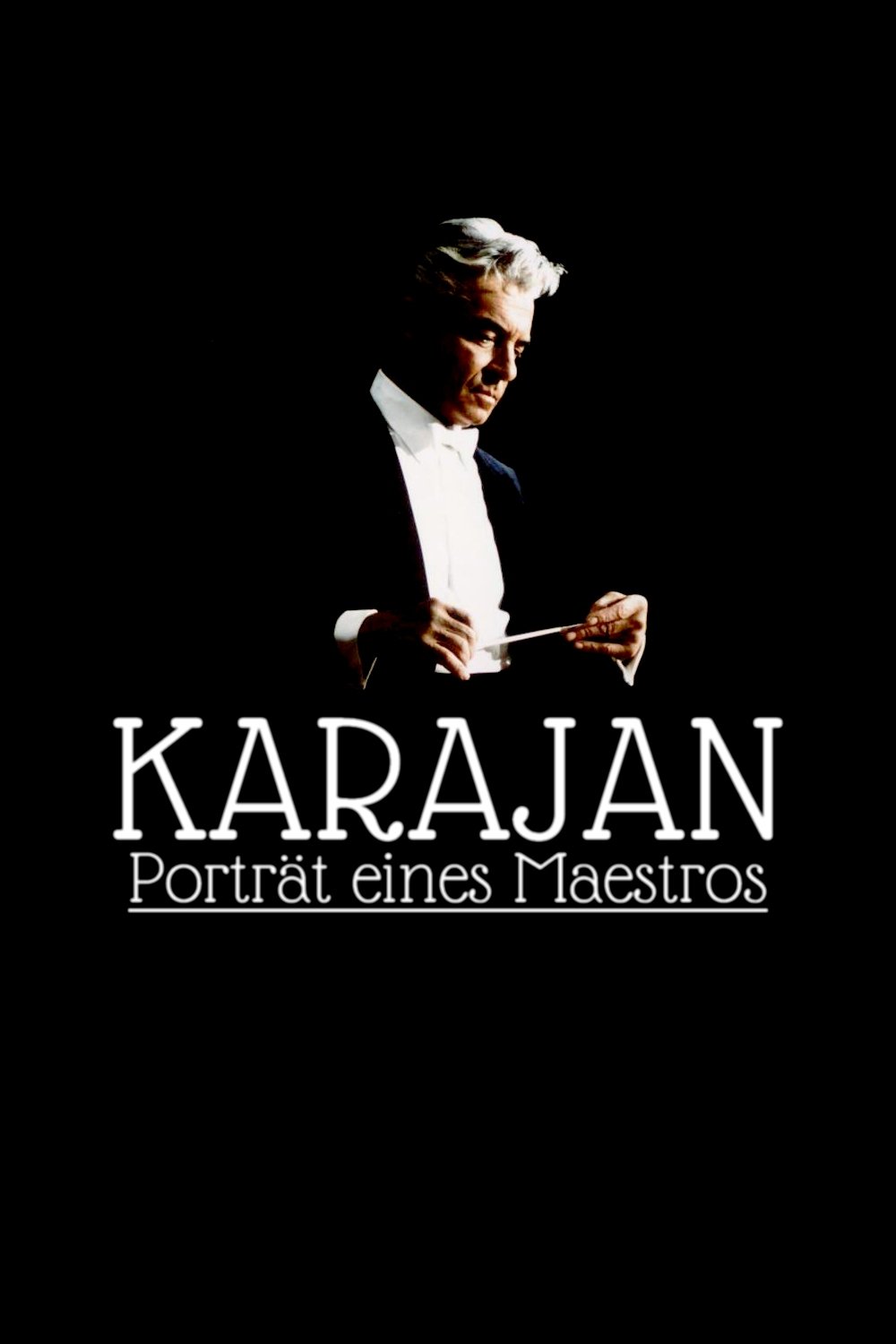
An account of the life and work of controversial German orchestra conductor Herbert von Karajan (1908-89), celebrated as one of the greatest musicians of the twentieth century.
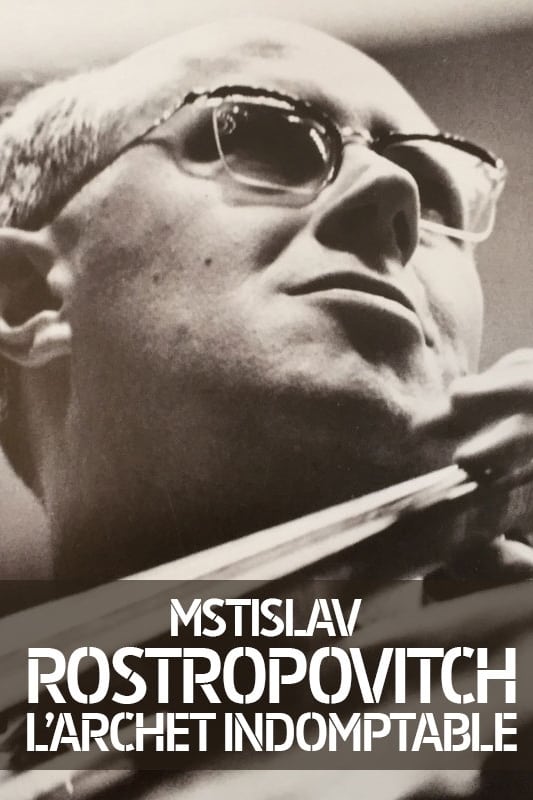
The Indomitable Bow is a unique portrait of Mstislav Rostropovich, a formidable personality as well as a complex, deeply political musician constantly engaged in a whirlwind of activities. Including unreleased documents, archive films, interviews and concert performances from this key figure of the 20th century, The Indomitable Bow is a remarkable testimony of the life and work of the legendary Slava
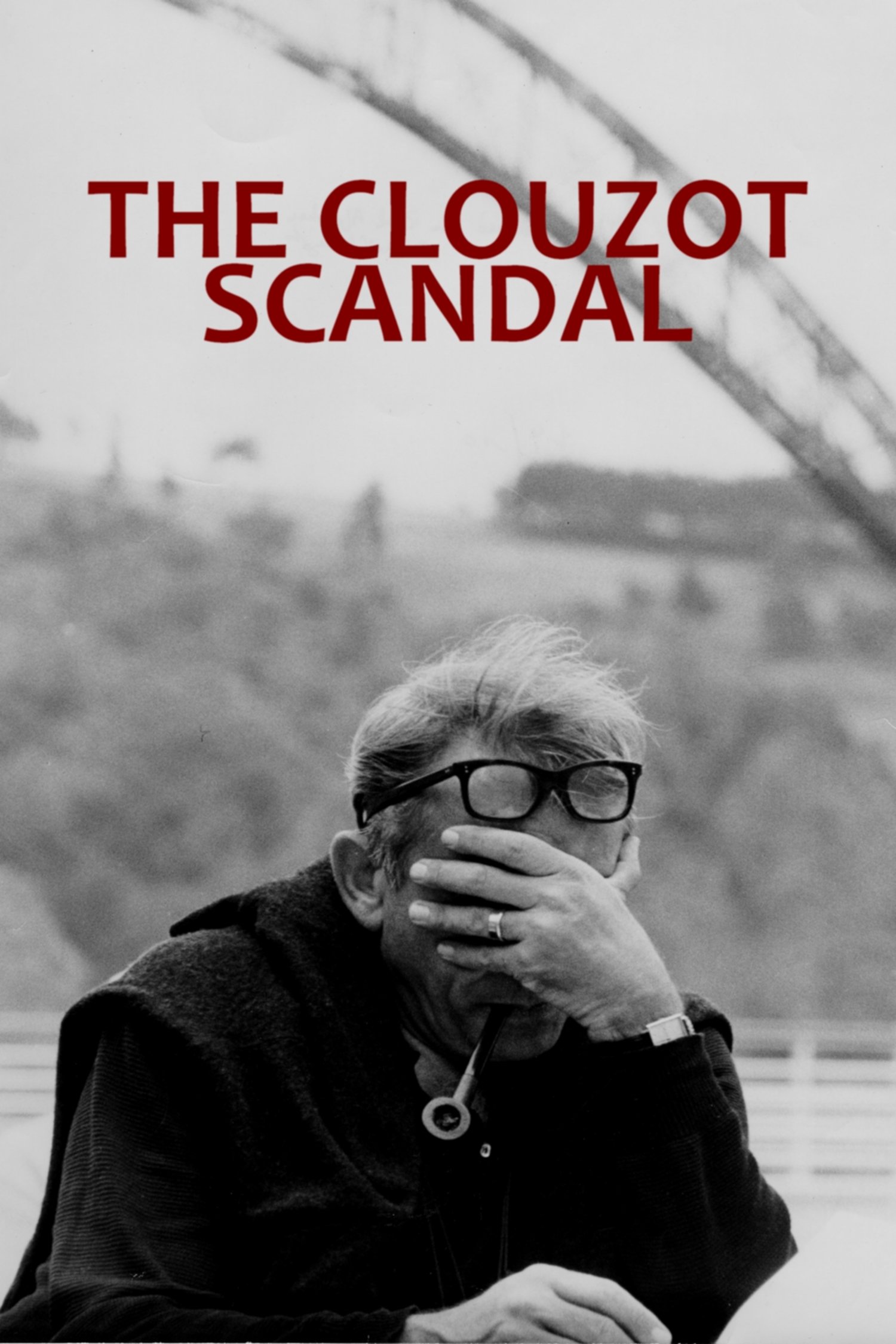
Great filmmakers claim the artistic influence of French director Henri-Georges Clouzot (1907-1977), a master of suspense, with a unique vision of the world, who knew how to offer both great shows and subtle studies of characters. Beyond the myth of the tyrannical director, a contrasting portrait of a visionary, an agitator, an artist against the system.

“The whole world is a jest, man was born a great jester…” So goes the brilliant conclusion to Verdi’s Falstaff, an opera inspired by Shakespeare’s beloved comedy The Merry Wives of Windsor. The virtuosic score requires a particularly talented cast, not to mention a truly exceptional conductor. Herbert von Karajan perfectly fits the bill, and this performance featuring the Wiener Philharmoniker and an all-star group of singers is clearly worthy of Verdi’s powerful work, a masterpiece whose comic facade thinly veils the complex and sometimes even tragic characters’ struggles. Recorded in 1982. Re-released 2015.
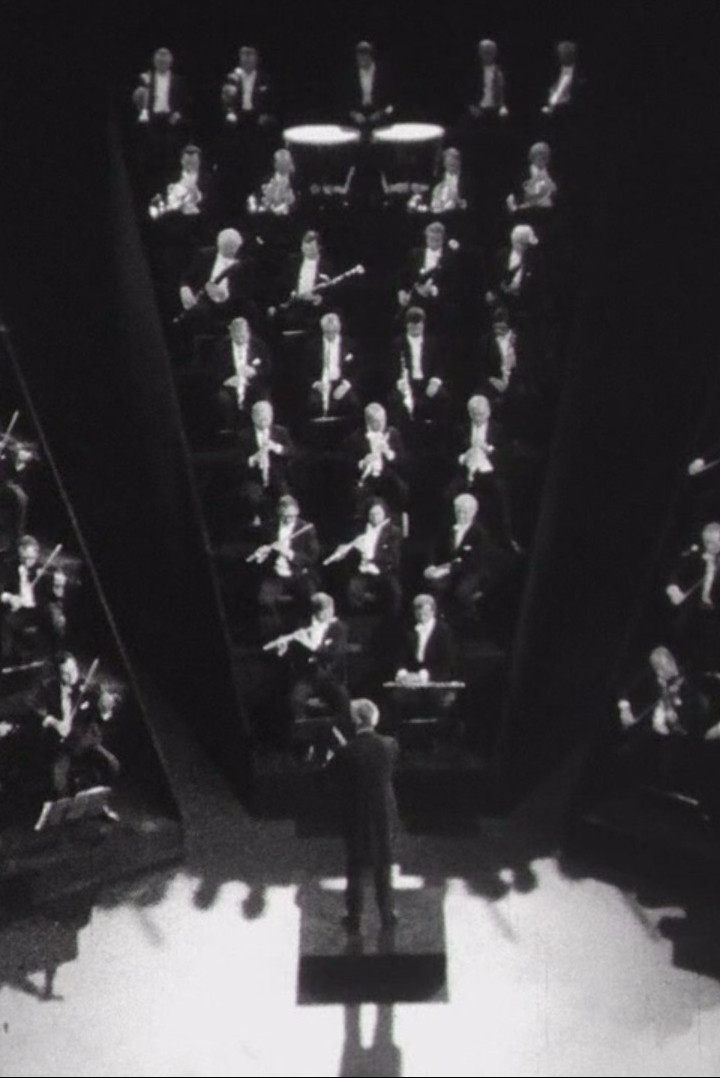
Very few people really knew Herbert von Karajan. The conductor gave access to his private life only a little circle of strictly loyal people who kept their secrets even long after the maestro’s death. This documentary for the first time shows in the whole dimension the real man Karajan: not only the image of a dandy that he himself had shown to the public, but the unfiltered image of his personality. Newly discovered original film footage from the inner circle shows Karajan’s private life like it really was.
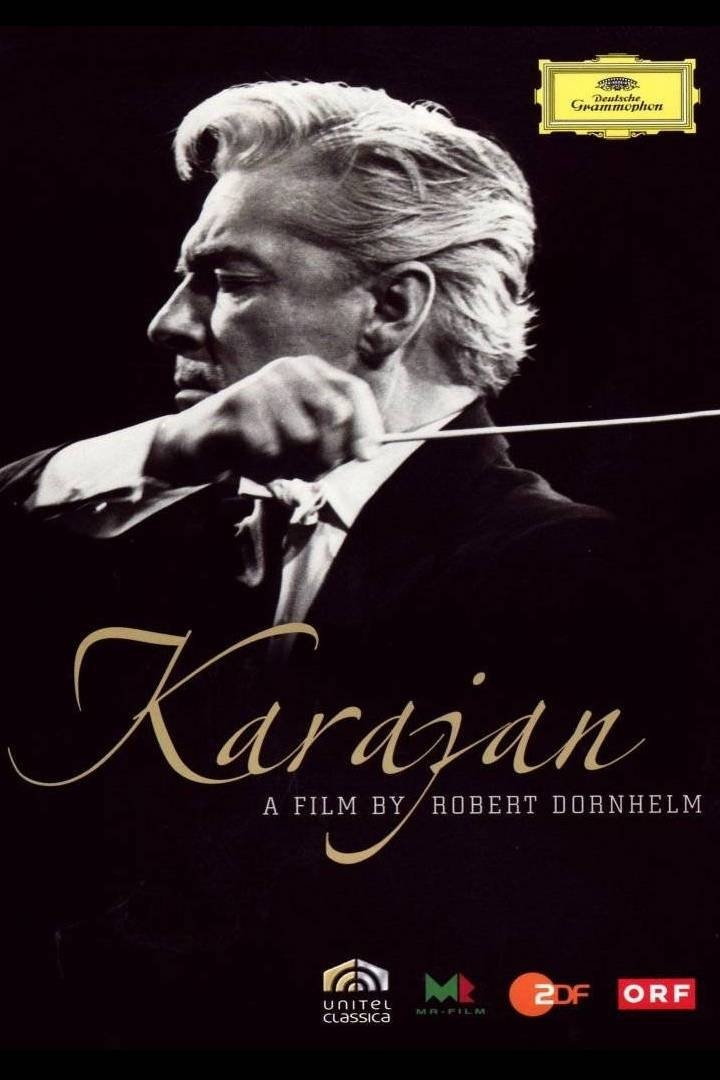
With a career that includes a 35-year tenure as composer of the Berlin Philharmonic and record sales topping 200 million, Herbert von Karajan is one of the most legendary figures in 20th-century classical music. Comprised of archival footage, performance highlights and interviews with the likes of Anne-Sophie Mutter, Christa Ludwig and Seiji Ozawa, this retrospective chronicles the life and times of the iconic Austrian maestro.

Documentary on conductor Herbert van Karajan, focusing on his early adoption of audio and video recording technology and his impetus to make use of it to preserve his musical legacy for future generations.
Herbert von Karajan (born Heribert Ritter[a] von Karajan; 5 April 1908 – 16 July 1989) was an Austrian conductor. He was principal conductor of the Berlin Philharmonic for 34 years. During the Nazi era, he debuted at the Salzburg Festival, with the Vienna Philharmonic, the Berlin Philharmonic, and during the Second World War he conducted at the Berlin State Opera. Generally regarded as one of the greatest conductors of the 20th century, he was a controversial but dominant figure in European classical music from the mid-1950s until his death. Part of the reason for this was the large number of recordings he made and their prominence during his lifetime. By one estimate, he was the top-selling classical music recording artist of all time, having sold an estimated 200 million records. The Karajans were of Macedonian Greek ancestry. Herbert's great-great-grandfather, Georg Karajan (Geórgios Karajánnis, Greek: Γεώργιος Καραγιάννης), was born in Kozani, in the Ottoman province of Rumelia (now in Greece), leaving for Vienna in 1767, and eventually Chemnitz, Electorate of Saxony. His last name, like several other Ottoman-era ones, contains the Turkish language prefix "kara", which means "black". He and his brother participated in the establishment of Saxony's cloth industry, and both were ennobled for their services by Frederick Augustus III on 1 June 1792, thus adding the prefix "von" to the family name. This usage disappeared with the abolition of Austrian nobility after World War I. The surname Karajánnis became Karajan. Although traditional biographers ascribed a Slovak and Serbian or simply a Slavic origin to his mother, Karajan's family from the maternal side, through his grandfather who was born in the village of Mojstrana, Duchy of Carniola (today in Slovenia), was Slovene. Aromanian heritage has also been claimed. Through the Slovene line, Karajan was related to the Slovenian-Austrian composer Hugo Wolf. He also seems to have known some Slovene. Heribert Ritter von Karajan was born in Salzburg, Austria-Hungary, the second son of senior consultant Ernst von Karajan (1868–1951) and Marta (née Martha Kosmač; 1881–1954) (married 1905). He was a child prodigy at the piano. From 1916 to 1926, he studied at the Mozarteum in Salzburg with Franz Ledwinka (piano), Franz Zauer (harmony), and Bernhard Paumgartner (composition and chamber music). He was encouraged to concentrate on conducting by Paumgartner, who detected his exceptional promise in that regard. In 1926 Karajan graduated from the conservatory and continued his studies at the Vienna Academy, studying piano with Josef Hofmann (a teacher with the same name as the pianist) and conducting with Alexander Wunderer and Franz Schalk. Karajan made his debut as a conductor in Salzburg on 22 January 1929. The performance got the attention of the general manager of the Stadttheater in Ulm and led to Karajan's first appointment as assistant Kapellmeister of the theater. His senior colleague in Ulm was Otto Schulmann. After Schulmann was forced to leave Germany in 1933 with the NSDAP takeover, Karajan was promoted to first Kapellmeister. ... Source: Article "Herbert von Karajan" from Wikipedia in English, licensed under CC-BY-SA 3.0.
By browsing this website, you accept our cookies policy.